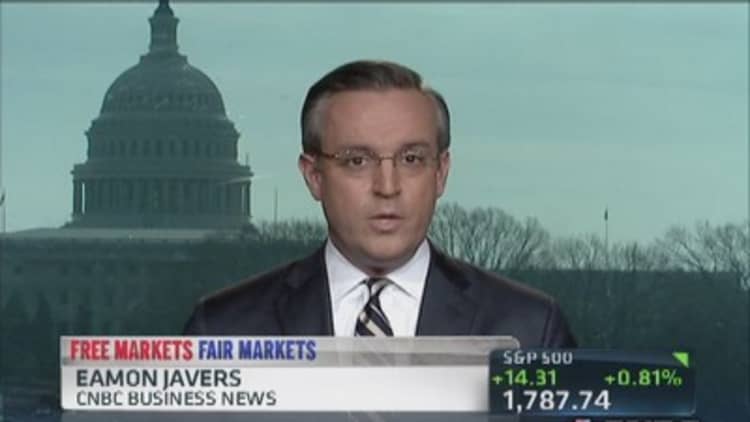
Some high-frequency trading firms have been paying thousands of dollars a month to receive direct access to market-moving news before individual investors can get their hands of it, The Wall Street Journal reported on Friday.
The lag between the release of news and its publication lets speed traders gain a valuable edge over other investors, the WSJ said, citing sources familiar with the practice.
According to market experts, it take between 100 milliseconds and several seconds for a newswire to publish a release after receiving it.
"All market participants—institutional and individual investors alike—have equal and unrestricted access to market-moving information via Business Wire's disclosure model," said a spokesman for Business Wire, a service owned by Warren Buffett's Berkshire Hathaway.
Business Wire distributes corporate-earnings releases and economic reports, such as the monthly manufacturing survey from the Federal Reserve Bank of Philadelphia.
Such direct access, though not illegal, illustrates how trading in today's lightning-fast markets presents a challenge to regulators, whose rules were largely carved out in an era dominated by human traders.
Joseph Spano, founder of Spano Trading, told the WSJ that an advantage of subscribing to a wire service is that news releases are automatically ingested into the firm's computers.
"The faster you want the data, the more it costs," he said in an email. "I guess this is capitalism."
According to Business Wire, its "simultaneous delivery capabilities have been validated and confirmed in numerous independent audits, as well as by multijurisdictional patent authorities."
It also said any timing discrepancies are the result of variances in the internal content management systems of its network subscribers
Click here to read the full report from The Wall Street Journal.
—By CNBC.com

